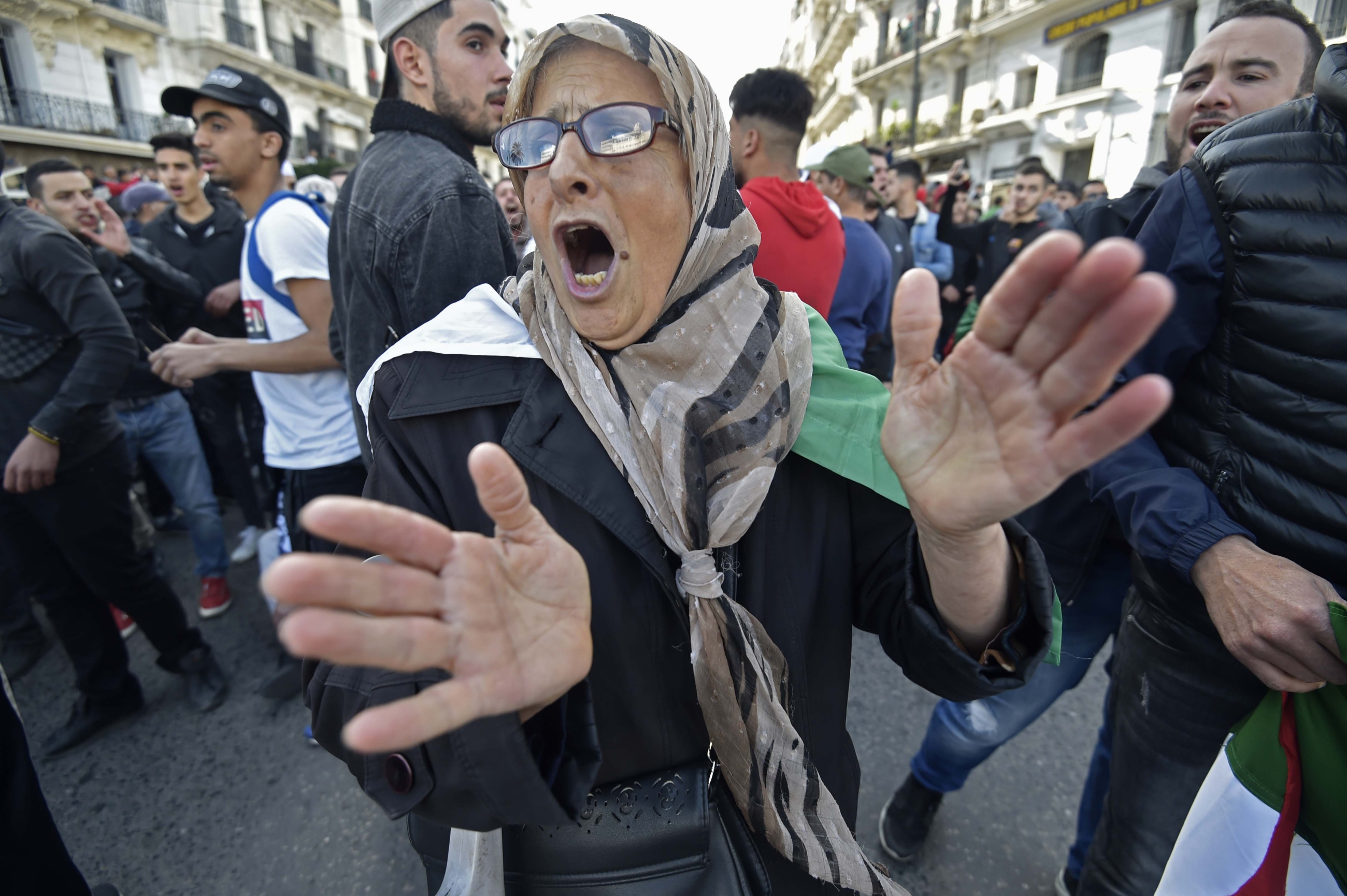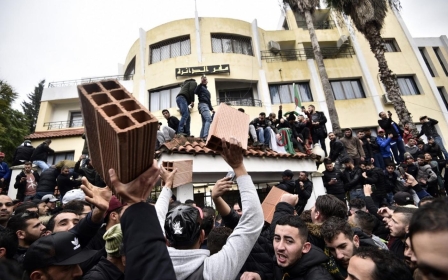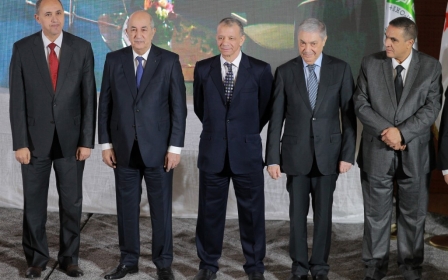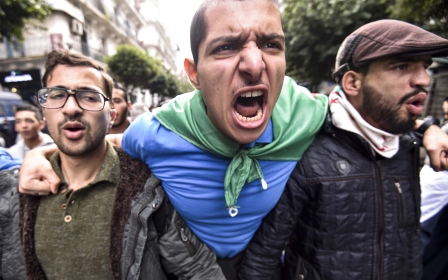'The leadership is deaf': Algerians smash ballot boxes to protest presidential election

Protesters in Algeria have stormed polling stations across the country and ransacked ballot boxes, denouncing what they described as a sham presidential election.
Shortly after polls opened on Thursday, protesters ransacked ballot boxes and destroyed part of the electoral lists in the northern mountainous region of Kabylie, home to much of the country's Berber minority.
Video footage shared on social media, purportedly from a polling station in a school building there, showed dozens of people hurling ballot papers into the air.
The country's electoral body said despite the widespread unrest, it expected total voter participation to be at about 50 percent. However, official figures released just one hour before polls closed showed voter turnout at 33 percent.
New MEE newsletter: Jerusalem Dispatch
Sign up to get the latest insights and analysis on Israel-Palestine, alongside Turkey Unpacked and other MEE newsletters
Preliminary results are expected to be released on Friday, the body added, with official results slated for later this month.
'We are not traitors'
Meanwhile, about 10,000 demonstrators thronged the streets of the capital Algiers on Thursday despite a heavy police presence.
At one point, the police appeared to rush the crowd with sticks, but fell back when more protesters arrived, chanting: "No vote! We want freedom!"
'There should be no surprise whatsoever in the reaction of the people. What is surprising is how the leadership is deaf to their demands'
- Dalia Ghanem, Carnegie Middle East Center
"How can we trust those who betrayed the country and helped Bouteflika?" read one placard at the rally, which also saw scores of people arrested and many others wounded in clashes with security forces.
Fatima, a 40-year-old protester who refused to give her surname, heaped scorn on the government and rebuffed claims that the protesters were foreign agents trying to stoke unrest.
Last week, Interior Minister Salah Eddine Dahmoune described the demonstrators as "traitors", "perverts" and "mercenaries" who were acting on behalf of foreign powers.
"We are not traitors," Fatima told Middle East Eye.
"We are taking to the streets call for our rights, to call for democracy, and hopefully [see] the emergence of a free Algeria."
Earlier this year, Abdelaziz Bouteflika, a veteran of Algeria's independence struggle, resigned as president after months of protests against his two-decade-rule.
Since his resignation in April, the oil-rich country has been dogged by near daily protests, with demonstrators demanding wide-scale political reforms ahead of any elections.
'The leadership is deaf'
Thursday's presidential vote comes amid a months-long struggle between the leaderless anti-government protest movement known as "Hirak", and a shadowy network of military, security and political officials who have ruled the country for decades.
The army, the strongest political player in the country, sees the vote as the only way to restore order in the country, a major natural gas supplier to Europe and home to 40 million people.
Lieutenant General Ahmed Gaid Salah, a powerful military chief who has emerged as the country's de-facto leader, has rejected the protesters' main grievance that elections shouldn't be held while the old guard of rulers remains in power.
Only five candidates are in the running for the presidency, but all are former associates of Bouteflika.
They include Ali Benflis, 75, a former Bouteflika loyalist-turned-rival; Abdelmadjid Tebboune, a 74-year-old who served as prime minister for seven months in 2017; Abdelakader Bengrina, a former minister of tourism; Azzedine Mihoubi, a former minister of culture; and Abdelaziz Belaid, the head of el-Moutstakbal party.
While there is no clear front-runner, Benflis, Tebboune and Mihoubi have all appeared to be the strong candidates, analysts have said.
"There should be no surprise whatsoever in the reaction of the people," said Dalia Ghanem, an Algerian resident scholar at the Carnegie Middle East Center.
"What is surprising is how the leadership is deaf to their demands," she told MEE.
'Risky move'
Zine Labidine Ghebouli, an Algeria analyst and contributor at the Washington Institute for Near East Policy, told MEE that the decision to press ahead with elections was a "risky move".
"The elections ... will not solve the legitimacy crisis that Algeria has been living under for decades," he said.
"Hirak will probably continue [with protests] even after the elections and this will weaken any incoming president.
"The ongoing political crisis needs an urgent dialogue between the protesters and the military ... and the expected low turnout proves that elections are not the solution, they will only deepen the crisis."
Whoever wins the election will have to tackle a flagging economy, with falling oil prices leading to a planned 9 percent decline in public spending next year.
Middle East Eye delivers independent and unrivalled coverage and analysis of the Middle East, North Africa and beyond. To learn more about republishing this content and the associated fees, please fill out this form. More about MEE can be found here.




